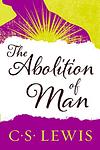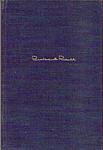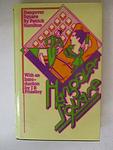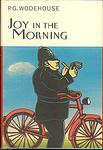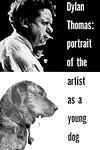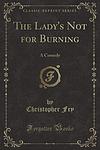The Greatest British Books From 1940 to 1949
Click to learn how this list is calculated.
This list represents a comprehensive and trusted collection of the greatest books. Developed through a specialized algorithm, it brings together 288 'best of' book lists to form a definitive guide to the world's most acclaimed books. For those interested in how these books are chosen, additional details can be found on the rankings page.
Genres
Countries
Date Range
Reading Statistics
Click the button below to see how many of these books you've read!
Download
If you're interested in downloading this list as a CSV file for use in a spreadsheet application, you can easily do so by clicking the button below. Please note that to ensure a manageable file size and faster download, the CSV will include details for only the first 500 books.
Download-
26. The Idea of History by R. G. Collingwood
"The Idea of History" is a philosophical examination of the concept of history, exploring its nature, the different methods of historical study, and its importance and role in society. The author asserts that history is not just a chronicling of past events, but a complex interaction between the historian and the facts, where the historian is not merely a passive recorder of facts, but an active participant in shaping the interpretation of those facts. The book also delves into the philosophy of history, discussing the idea of historical truth, the problem of historical causation, and the nature of historical evidence.
-
27. The Franchise Affair by Josephine Tey
The book revolves around a solicitor named Robert Blair who is called upon to defend two women, Marion Sharpe and her mother, accused of kidnapping a teenage girl named Betty Kane. Betty claims she was held captive and forced to work as a servant at the Sharpes' home, The Franchise. However, as Blair delves deeper into the case, he uncovers inconsistencies in Betty's story and begins to suspect that there is more to the accusation than meets the eye. Set in postwar England, the narrative weaves through twists and turns as Blair seeks to prove the innocence of the Sharpes in a society eager to find scandal and guilt.
-
28. The Abolition of Man by C. S. Lewis
This philosophical book explores the concepts of objective value and natural law, arguing that these are essential for moral reasoning. The author criticizes modern education for producing "men without chests," by which he means individuals who deny the importance of moral absolutes. He suggests that this could lead to the "abolition of man" as we traditionally understand him, replacing moral individuals with conditioned responses. The book also discusses the dangers of scientific advancement without moral considerations.
-
29. A History of Western Philosophy by Bertrand Russell
This book provides a comprehensive overview of Western philosophy from the pre-Socratic philosophers through the Middle Ages and the Renaissance, up to the early 20th century. It examines the ideas and contributions of major philosophers, including Plato, Aristotle, Descartes, Spinoza, Leibniz, Locke, Hume, Kant, and others, while also exploring the cultural and historical context in which their thoughts developed. The work is known for its accessible prose and critical perspective, as it not only presents philosophical concepts but also offers the author's analysis and interpretation of these ideas, highlighting their relevance to the broader sweep of human thought and society.
-
30. The Berlin Stories by Christopher Isherwood
"The Berlin Stories" is a collection of two novels that present a semi-autobiographical account of the author's time in 1930s Berlin during the rise of the Nazi Party. It vividly portrays the city's underground scene, capturing the lives of a variety of characters from different social classes and backgrounds. The narrative provides a stark and poignant exploration of the human condition against the backdrop of political upheaval and societal change, offering a unique perspective on a critical period in history.
-
31. The Magic Faraway Tree by Enid Blyton
In this enchanting children's novel, a group of young siblings discovers an incredible tree in an enchanted forest near their new countryside home. This isn't just any tree; it's home to a variety of fantastical creatures and has magical lands that appear at its top, each with its own unique adventures and challenges. The children befriend the tree's quirky inhabitants and embark on a series of whimsical escapades, exploring lands filled with delights, dangers, and mysteries. Through their adventures, they learn the value of friendship, courage, and the boundless nature of imagination.
-
32. Hangover Square: A Story of Darkest Earl's Court by Patrick Hamilton
Set in 1939, on the eve of World War II, the novel follows George Harvey Bone, a lonely, alcoholic man living in London's Earl's Court, who is infatuated with a manipulative small-time actress, Netta. George suffers from a form of split personality disorder, which leads him into periods of 'dead moods' where he contemplates murdering Netta. The book paints a grim picture of pre-war London, filled with despair, failed ambitions, and the looming threat of a global conflict.
-
33. The Worm Forgives The Plough by John Stewart Collis
This book is a lyrical and meditative reflection on the author's experiences working on the land during World War II, part of a movement where intellectuals were recruited to aid in agricultural work to support the war effort. The narrative combines personal observations with philosophical musings on the natural world, offering a unique perspective on the rhythms of rural life and the profound connection between humans and the earth. The author's prose poetically captures the beauty and hardship of manual labor, the changing seasons, and the intricate ecosystems of the countryside, ultimately presenting a thoughtful exploration of the relationship between nature and mankind, and the humility and learning that come from working closely with the soil.
-
34. Joy in the Morning by P. G. Wodehouse
"Joy in the Morning" is a comedic novel set in the 1920s that revolves around the life of a wealthy, idle young man and his valet. The protagonist often finds himself in complicated situations due to his romantic entanglements, friendships, and his aunt's demands. However, his clever valet is always there to help him out of these predicaments. The story is filled with humor, wit, and classic British charm.
-
35. Man-Eaters of Kumaon by Jim Corbett
The book is a collection of true stories about the author's hunting experiences in India, specifically his encounters with man-eating tigers and leopards in the Kumaon region. The author, a renowned hunter, was often called upon to kill these man-eaters when they became a threat to local villages. The book provides thrilling accounts of his hunts, as well as his observations on the behavior of these animals and his respect for their power and cunning.
-
36. Put Out More Flags by Evelyn Waugh
The novel is a satirical take on the early days of World War II in England, focusing on the escapades of a group of idiosyncratic characters who navigate the changing social landscape with varying degrees of opportunism, cowardice, and humor. The protagonist, a charming but irresponsible upper-class man, seeks to exploit the war for personal gain, while his circle of friends and acquaintances engage in their own forms of moral gymnastics, against a backdrop of patriotic fervor and the looming threat of invasion. The narrative weaves together themes of redemption, the absurdity of war, and the quirks of British society during a time of national crisis.
-
37. The Corner That Held Them by Sylvia Townsend Warner
This novel offers a vivid portrayal of life in a medieval English convent over several decades, beginning in the 14th century. Without focusing on a central plot, it weaves together the lives, ambitions, and struggles of the nuns and their surrounding community against a backdrop of historical events like the Black Death and the Peasants' Revolt. Through detailed character studies and the depiction of daily monastic life, the narrative explores themes of faith, power, and the search for meaning in a world marked by transience and adversity. The book stands out for its rich historical detail, complex characters, and its reflection on the human condition through the lens of a secluded, yet dynamically changing, religious community.
-
38. Back by Henry Green
"Back" is a novel about a British man who returns home after being a prisoner of war during World War II. He struggles to adjust to civilian life and is haunted by the loss of his lover, who died while he was away. As he tries to move on, he becomes entangled in a complicated relationship with his lover's half-sister, leading to a poignant exploration of love, loss, and the human capacity for resilience.
-
39. The Wind on the Moon by Eric Linklater
The book is a whimsical and captivating tale of two young girls, Dinah and Dorinda, who, when left alone by their father, find themselves capable of transforming into any creature they choose. Throughout their magical adventures, they transform into kangaroos, rescue their father from a dungeon, and even win a dance contest. The story is a delightful mix of fantasy, humor, and adventure, exploring themes of freedom, friendship, and courage.
-
40. Whisky Galore by Compton Mackenzie
Set against the backdrop of the Second World War, this comedic novel unfolds on the fictional Scottish island of Great Todday, where the locals are suffering from a severe whisky shortage due to wartime rationing. The narrative takes a delightful turn when a shipwreck off the island's coast presents the islanders with a windfall of 50,000 cases of whisky. The story humorously chronicles the efforts of the islanders to salvage and hide their precious cargo from the authorities, weaving a tale of community, cunning, and the lengths to which people will go to preserve their way of life and enjoy the simple pleasures in times of hardship.
-
41. Lark Rise To Candleford by Flora Thompson
This book is a semi-autobiographical trilogy that paints a vivid portrait of rural English life at the end of the 19th century. Through the eyes of a young girl growing up in the hamlet of Lark Rise and later moving to the more prosperous neighboring village of Candleford, the narrative delicately explores the social dynamics, traditions, and changes in the countryside of that era. Rich in detail, the story captures the essence of community, the hardships of peasant life, and the inevitable transformation brought about by progress and education, offering a nostalgic look at a bygone way of life.
-
42. Portrait Of The Artist As A Young Dog by Dylan Thomas
This book is a collection of semi-autobiographical stories that delve into the early life and formative years of a young Welsh poet. Through vivid, evocative prose, the reader is taken on a journey through the author's childhood and adolescence in Swansea, Wales, during the 1920s and 1930s. The stories are rich with the sensory experiences of youth, capturing moments of joy, confusion, and the pains of growing up. The narrative explores universal themes of nostalgia, the loss of innocence, and the artistic awakening of a young man with a keen eye for the beauty and absurdity of the world around him.
-
43. The Concept Of Mind by Gilbert Ryle
This philosophical work challenges the Cartesian dualism of mind and body, proposing instead that the mind is not a separate entity but a way of acting. The author introduces the notion of "the ghost in the machine" to critique the traditional understanding of the mental as distinct from the physical. Through a detailed analysis, the text argues that mental vocabulary should be understood in terms of dispositions to behave in certain ways, rather than referring to an inner, private realm. This influential book reshapes the way we think about the mind, emphasizing that mental processes are not located in an inner space but are observable in the patterns of behavior and the competencies individuals exhibit.
-
44. The Unquiet Grave by Cyril Connolly
"The Unquiet Grave" is a reflective, deeply personal work that combines elements of a journal, essay, and a collection of aphorisms. Written during a period of the author's intense grief and existential contemplation following the end of a significant relationship, the book is a mosaic of thoughts on life, love, literature, and society. It is rich with literary references and musings on the human condition, offering a poignant exploration of melancholy and the quest for meaning in the face of mortality. The author's erudition and wit provide a compelling, albeit somber, meditation on the nature of happiness and the transience of human passions and achievements.
-
45. Pack My Bag by Henry Green
"Pack My Bag" is a reflective autobiography written on the eve of World War II, offering a poignant look into the author's life and mindset during a time of impending crisis. The narrative weaves personal memories with broader social observations, exploring the author's privileged upbringing, education, and early adulthood. It delves into the complexities of class and the human condition, with a particular focus on the author's experiences working in his family's factory and the insights gained from interacting with workers from different social strata. The book serves as both a personal testament and a historical document, capturing the anxieties of a generation on the brink of global conflict.
-
46. The Lady's Not For Burning by Christopher Fry
This play is a comedic and poetic exploration of love, justice, and the complexity of human motives, set in a small town in the Middle Ages. It revolves around a disillusioned ex-soldier who wishes for death and a woman accused of witchcraft who desires to live. Their fates intertwine in a series of events filled with wit, philosophical reflections, and a critique of societal norms. Through its vibrant characters and lyrical dialogue, the play delves into themes of redemption, the absurdity of life, and the enduring power of love, ultimately offering a hopeful perspective on the human condition.
-
47. The Age of Anxiety by W. H. Auden
"The Age of Anxiety" is a lengthy poem divided into six sections, set in a bar in New York City during the Second World War. It presents four characters - Quant, Malin, Rosetta, and Emble - who represent different aspects of the modern age. Through their discussions, dreams, and soliloquies, the poem explores themes of isolation, fear, and the search for identity and faith in a world marked by societal and technological change. It is known for its complex structure and use of various literary styles and forms.
-
48. Seven Days In New Crete by Robert Graves
In this speculative fiction novel, a poet from the mid-20th century is transported into a future utopian society on the island of Crete, which has been renamed New Crete. This society has rejected industrialization and lives in harmony with nature, guided by matriarchal principles and the worship of a goddess. The poet, initially enchanted by the peaceful and artistic way of life, soon discovers underlying tensions and contradictions, particularly when he becomes involved in the island's rituals and politics. As a festival that reenacts a mythic battle between the gods approaches, the poet's presence and actions inadvertently set off a chain of events that challenge the society's values and stability, leading to a dramatic conclusion that questions the viability of utopia.
-
49. No Bed For Bacon by Caryl Brahms, S. J. Simon
This book is a comedic romp through Elizabethan England, where historical figures and fictional characters collide in a series of misadventures. At the heart of the story is the quest for a bed promised to Sir Walter Raleigh by Queen Elizabeth herself, which becomes entangled with William Shakespeare's struggle to write his plays amidst the chaos of missing manuscripts, mistaken identities, and the antics of an anachronistic swashbuckler. The narrative weaves together satire, farce, and witty dialogue, poking fun at the quirks of the time period while offering a playful take on the creation of some of the most enduring works of English literature.
-
50. The Ministry Of Fear by Graham Greene
Set against the backdrop of World War II London during the Blitz, this gripping novel follows Arthur Rowe, a man haunted by guilt over his wife's mercy killing. His life takes a dramatic turn when he unwittingly wins a cake at a fête, which thrusts him into a world of espionage, murder, and intrigue. As Rowe becomes entangled in a complex web of spies and secret organizations, he must navigate a landscape where trust is scarce, and the line between friend and foe is blurred. The narrative masterfully combines elements of suspense, psychological depth, and the exploration of morality under the pressures of wartime, delivering a compelling story of a man's quest for redemption amidst chaos.
Reading Statistics
Click the button below to see how many of these books you've read!
Download
If you're interested in downloading this list as a CSV file for use in a spreadsheet application, you can easily do so by clicking the button below. Please note that to ensure a manageable file size and faster download, the CSV will include details for only the first 500 books.
Download

